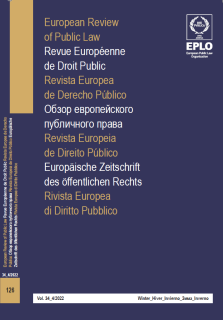
Cross-border Surrogacy in the Practice of the European Court of Human Rights
JUDr. PhDr., PhD. – Vice-Dean, Associate Professor of International Law,
Department of International and European Law, Faculty of Law Pan-European University; member of the Central European Professors’ Network, lilla.garayova@paneurouni.com
Over the past couple of decades reproductive tourism has become a way for infertile couples to take part in surrogacy when their domestic law does not allow surrogacy agreements. We can find very diverse approaches to surrogacy across the world, from prohibitive to permissive and non-regulating legal regimes with a multitude of approaches to commercial and altruistic surrogacy within these categories. Even across Europe, a region built on shared values and common approaches to fundamental human rights, surrogacy remains a divergent territory. Cross-border surrogacy cases demonstrate a very complex dilemma on the European Court of Human Rights’ role in the European legal order, and it bears examining whether with the rise of cross-border surrogacy cases, it will be feasible to maintain such distinct domestic legislations across States Parties to the Convention, or if the impact of the decisions of the ECtHR will lead to unified human rights standards regarding international surrogacy.
Au cours des deux dernières décennies, le tourisme reproductif est devenu un moyen pour les couples stériles de faire appel à une mère porteuse lorsque leur législation nationale n’autorise pas les conventions de maternité de substitution. Nous trouvons des approches très diverses de la maternité de substitution dans le monde, qui vont des régimes juridiques prohibitifs aux régimes permissifs et non réglementaires, avec toute une gamme intermédiaire d’approches commerciales ou désintéressées. Même en Europe, région fondée sur des valeurs partagées et des approches communes des droits de l’homme fondamentaux, la maternité de substitution reste un terrain de divergence. Les affaires transfrontalières de maternité de substitution mettent en évidence un dilemme très complexe sur le rôle de la Cour européenne des droits de l’homme dans l’ordre juridique européen, et il convient d’examiner si, avec l’augmentation des affaires transfrontalières de maternité de substitution, il sera possible de maintenir des législations nationales aussi distinctes dans les Etats parties à la Convention, ou si l’impact des arrêts de la Cour européenne des droits de l’homme conduira à des normes unifiées en matière de droits de l’homme concernant la maternité de substitution internationale.
* This work was supported by the Slovak Research and Development Agency under the contract No. APVV-20-0567.





















